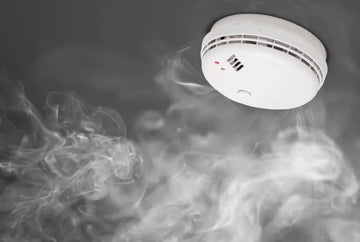Do Smoke Detectors Detect Vape?
While vaping's popularity has seen a considerable surge, with millions worldwide switching from traditional cigarettes to electronic cigarettes or vape pen usage, questions still exist about its impact on safety measures such as smoke detectors. Here, we explain this question: Do Smoke Detectors Detect Vape?
Know About Smoke Detectors:
Smoke detectors are designed to detect particles created in the atmosphere during combustion. Standard smoke detectors often reply to smoke from burning materials like wood, paper, or fabric and use photoelectric or ionization technologies in their design - their primary goal being to alert people of possible fire risks.
Check out now: Lost Mary Vape
The Challenge with Vape:
Defiant to smoking traditional cigarettes, vaping does not affect discharge in the same way. Instead, electronic cigarettes and vape pens use battery-powered heating elements to vaporize liquid containing nicotine, flavorings, and other chemicals - this aerosolized form is more often referred to as "vapor" rather than smoke.
While vapor and smoke might seem similar, they each possess unique properties. Smoke is generated by burning solid materials, which release minute particles into the air. At the same time, vape consists of liquid droplets that quickly dissipate into thin air currents, leaving minimal residue behind. Unfortunately, traditional smoke detectors have difficulty with accurately detecting vape as an alternative form of smoke emissions.
Do Smoke Detectors Detect Vape? Unfortunately, traditional smoke detectors were never intended to detect vape; due to vaping not using combustion as with smoking, its particles often dissipate too quickly for conventional smoke detectors to register them.
Note that more advanced smoke detectors may include sensors or technologies to improve their ability to identify different particles in the air; however, most household smoke detectors do not specifically target vaping-related vapor emissions.
Maintaining Safety:
While smoke detectors may not be effective at detecting vape, it's still vitally important to prioritize safety in all environments where vaping takes place. Individuals who vape must remain aware of their surroundings and follow guidelines to reduce potential safety risks, such as not vaping near sensitive equipment like smoke detectors to avoid false alarms or malfunctions.
Buy now: Packspod
Conclusion:
"Do smoke detectors detect vape?" emphasizes the necessity of understanding the differences between smoke and vapor. Traditional smoke detectors were not designed to detect vaping-related vapor production; as technology advances, this gap may close; for now, however, users should remain mindful and prioritize safety in all environments they encounter.





